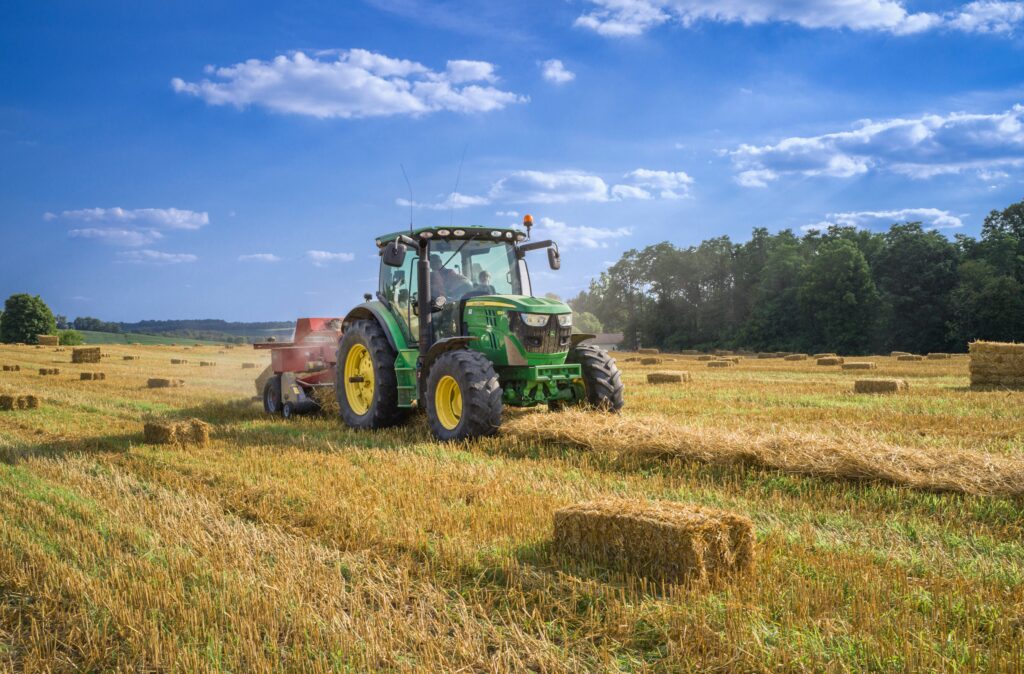Key Takeaway Table
| Key Point | Description |
|---|---|
|
Definition
|
Agricultural business loans provide financing to farmers, horticulturists and other agribusinesses for operational expenses as well as the purchase of land, equipment, livestock, fertiliser, crops, and more.
|
|
Why Get an Agricultural Business Loan?
|
Agricultural loans can help with startup, operational, and expansion costs. They can also help with modernising equipment and processes to increase efficiency and improve product quality. Loans can also serve as a safety net that mitigates risks associated with farming, like droughts and pests.
|
|
Types of Agricultural Business Loans
|
Lenders offer various agricultural loan products tailored to the unique needs of the agricultural sector. Borrowers can obtain term loans for larger expenses and lines of credit for operational costs. Businesses can also obtain invoice and equipment financing.
|
|
Agricultural Business Loan Qualifications
|
Factors like land value, cash flow projections, equipment needs and prior farming experience influence agricultural loan qualification and terms.
|
|
Government Agricultural Lending Programs
|
Government schemes like the Regional Investment Corporation's loan products aim to support agricultural businesses and drought preparedness.
|
Agriculture is one of the most significant sectors in Australia, accounting for 55% of the total land use of the country. In the past decade, the gross value added of the industry amounts to more than $51 billion.
Entering the agriculture industry is no easy feat—it requires a large amount of capital, among other things. Hard work and resilience are necessary, especially in the face of droughts, seasonal downturns, and market fluctuations. Even so, businesses in the agriculture sector are some of the least likely to fail this year. If you’re interested in starting an agribusiness, it is a worthwhile venture that can be both fulfilling and successful.
To help you reach your goal, you can obtain various loan products that can help you with every aspect of agribusiness, from land purchases to operational expenses.
What are Agricultural Business Loans?
Agricultural business loans, often called farm loans or ag loans, are financing products designed specifically for businesses operating in the agricultural sector. These loans cater to the capital and cash flow needs of farmers, horticulturists, viticulturists, apiculturists, aquaculturists, and other agricultural producers.
The agricultural industry has unique financial requirements compared to other businesses. Factors like seasonality, commodity pricing, climate variability and long production cycles create cashflow issues. Agricultural loans help bridge these gaps by providing funds for:
- Purchasing farmland or expanding acreage
- Livestock acquisition
- Planting/maintaining annual crops
- Equipment purchases (tractors, harvesters, irrigation)
- Operating expenses (fertiliser, seeds, pesticides, labour)
- Drought/disaster recovery and preparedness
Why Get an Agricultural Business Loan?
Agricultural loans in Australia offer a range of benefits to farmers and agricultural businesses, providing essential financial support that can help to sustain and grow the country’s agricultural sector. Here are some reasons why you should get an agricultural loan:
- Startup: Agricultural loans help with high startup costs, supporting and encouraging those who want to enter the industry. Some loans are targeted at supporting young and new entrants into farming, helping to ensure the future sustainability of the sector. These programs may offer additional support, such as mentorship and training, alongside financial assistance.
- Capital for Expansion: Loans provide the necessary capital for farmers to expand their operations, purchase additional land, or diversify their agricultural activities. This can lead to increased production and potentially higher profits.
- Modernisation and Efficiency: With access to funding, farmers can invest in modern machinery, technology, and infrastructure that improve efficiency and productivity. This includes investments in irrigation systems, harvesting equipment, and storage facilities, which can lead to cost savings and higher yields.
- Improved Cash Flow: Agriculture is a sector known for its seasonal cash flow challenges. Loans can offer the working capital needed to manage these fluctuations, allowing farmers to cover operational costs such as seeds, fertilisers, and labour during planting seasons, even when income is off-peak.
- Risk Management: Agricultural loans can also serve as a form of risk management, enabling farmers to continue their operations in the face of adverse weather conditions, pests, drought, or market fluctuations.
- Enhanced Product Quality and Sustainability: With access to better resources and technology through financing, farmers can improve the quality of their produce and adopt more sustainable farming practices.
- Economic Growth: By supporting the agricultural sector, agricultural loans contribute to the broader economic growth and stability of rural areas in Australia. They enable job creation, support rural communities, and contribute to food security.
Types of Agricultural Loans
Lenders offer a variety of agricultural loan products to fit different borrower needs and situations. Here are some loan products agribusinesses can obtain:
Term Loans
Traditional term loans provide lump-sum financing that is repaid over a fixed term. These loans are commonly used for larger expenses, such as farmland purchases, equipment acquisitions, livestock purchases, or one-time agricultural investments.
Equipment Finance
Equipment financing enables the purchase of new or used farm machinery like tractors, harvesters, trucks, and more. The equipment typically is considered as the security for the loan. With equipment financing, agribusinesses can acquire equipment fast, enabling them to start operations immediately.
Specialised Agriculture Loans
Shop around for lenders that provide specialised loans for the purchase of livestock and crops. For instance, some lenders may provide short-term financing that can help cover the costs of planting and harvesting crops, which will then be repaid using the proceeds from crop sales. Some lenders may also provide financing for livestock, with the livestock considered as security for the loan.
Qualifications for Agricultural Loans
While requirements vary by lender and loan type, key factors lenders assess for agricultural loan approval include:
- Land Value/Assets: The value of farmland, equipment, structures, and livestock can be scrutinised for the purpose of securing the loan. A business with prime agricultural land with good soil quality and water access can have a better chance of loan approval.
- Farm Experience: Lenders prefer businesses with substantial prior experience with farm operations or those with formal agricultural training and credentials. Newer farmers may need to rely more on security to get approved or apply with a more experienced co-borrower.
- Cashflow and Income: Lenders may require tax returns, profit/loss statements and cash flow projections to prove the ability of a business to service the loan.
- Financial History and Creditworthiness: Lenders will assess the applicant’s financial history, including credit scores, to determine their creditworthiness. A good credit history and a solid track record in financial management can improve the chances of loan approval.
- Risk Management: Having mitigation plans for climate, market, drought or disaster risks is viewed favourably by lenders.
Government Agricultural Lending Programs
In addition to commercial lenders, the Australian government facilitates affordable financing for farmers and agricultural businesses. Through the Regional Investment Corporation (RIC), the government provides various loan products, such as the following:
- Drought Loan: This loan helps agricultural businesses through drought preparation, management, and recovery.
- AgriStarter Loan: This loan is designed to assist new farmers and support farm succession arrangements. Borrowers can get loan amounts up to $2 million with lower interest rates and repayment plans tailored to their cash flow.
- AgBiz Drought Loan: Farm-related small businesses can use this loan to pay for operating expenses, like bills, payroll, and payments for contractors.
To be eligible for the government’s financing options, you must be:
- An Australian citizen or a permanent resident
- Contribute at least 50% of your labour to the farm business
- Earn or plan to earn at least 50% of your income from the business
- Operate as a sole trader, partnership, trust, or corporation in Australia with tax registration and ABN
- In an eligible agriculture or farm-related industry
Find Agricultural Loans for Your Business
Whether you need funds to purchase farmland and equipment or if you need to cover cash flow gaps, there are plenty of lenders that can help you. We at Dark Horse Financial can help direct you to the lenders that can give you the rates and terms that will best benefit your business. Contact us to know more.





